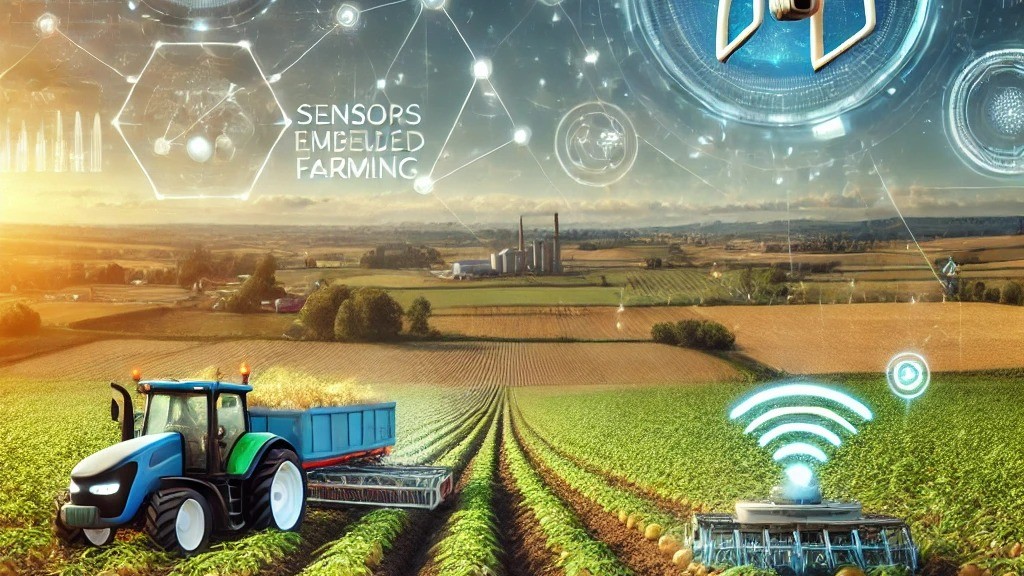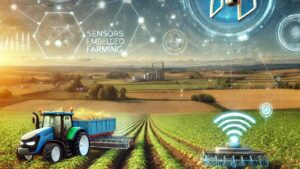

Introduction
Agriculture, the backbone of human civilization, is undergoing a technological revolution. Artificial Intelligence (AI), once a concept confined to science fiction, is now transforming the way we farm. From precision farming to crop monitoring, AI is empowering farmers to make informed decisions, increase yields, and minimize environmental impact.
AI Applications in Agriculture
-
Precision Farming:
- Soil Analysis: AI-powered sensors analyze soil composition, moisture levels, and nutrient deficiencies, enabling farmers to apply fertilizers and water precisely where needed.
- Variable Rate Application: AI algorithms optimize the application of fertilizers, pesticides, and seeds based on real-time data, reducing input costs and environmental pollution.
- Smart Irrigation: AI-driven irrigation systems monitor soil moisture and weather conditions to schedule efficient watering, conserving water resources.
-
Crop Monitoring:
- Drone Surveillance: Drones equipped with AI-powered cameras capture high-resolution images and videos of crops, detecting diseases, pests, and nutrient deficiencies early on.
- Satellite Imagery: Satellite data analyzed by AI algorithms provides insights into crop health, growth patterns, and yield predictions.
-
Predictive Analytics:
- Weather Forecasting: AI models accurately predict weather patterns, helping farmers plan planting and harvesting schedules, and mitigate risks from adverse weather conditions.
- Yield Prediction: AI analyzes historical data and real-time information to forecast crop yields, enabling farmers to make informed decisions about resource allocation and market planning.
-
Automation:
- Autonomous Tractors: Self-driving tractors reduce labor costs and increase efficiency, performing tasks like plowing, seeding, and harvesting with precision.
- Robotic Harvesting: AI-powered robots can pick fruits and vegetables more efficiently and with less damage than manual labor.
Benefits of AI in Agriculture
- Increased Productivity: AI-driven technologies optimize resource use and improve crop yields.
- Reduced Costs: Precision farming and automation lower input costs and labor expenses.
- Environmental Sustainability: AI helps minimize the use of chemicals and water, reducing environmental impact.
- Enhanced Decision-Making: AI provides valuable insights to farmers, enabling them to make data-driven decisions.
Challenges and Future Outlook
While AI offers tremendous potential, challenges such as data privacy, cybersecurity, and the digital divide need to be addressed. However, the future of agriculture looks promising, with AI playing a pivotal role in shaping a sustainable and efficient food production system.
Conclusion
AI is revolutionizing agriculture, empowering farmers to meet the growing demand for food while preserving our planet’s resources. By harnessing the power of AI, we can build a more sustainable and prosperous future for agriculture.







